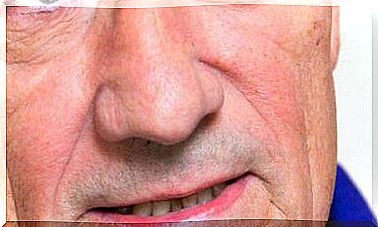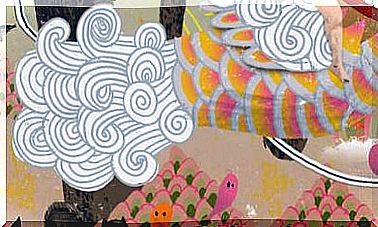5 Basic Pillars To Educate Feelings
The human being is born without a predetermined nature; he is acquiring a way of being, a personality, throughout his life and, especially, in the years of transition towards maturity.

An ethically good life does not seek only individual but collective happiness. To do this, it is necessary to share civic values that are formed through education and authentic emotion.
Teaching to feel properly, to wish the good, is the only real way towards a more just, supportive and tolerant society.
After several years dedicated to studying and teaching the ethics of philosophers, I think that who really hit the nail on the head of what ethics should be was Aristotle, with his theory of virtues.
Aristotle was looking for how to get the person to conform to a way of living suitable for himself and for the whole community. That adaptation to the good life – he thought – was not only the best way to approach individual happiness but also to achieve collective happiness.
Although the ethics of virtues fell into oblivion for a long time, today it reappears and has quite a few supporters.
Aristotle and education as the source of our personality
Very summarized, the theory of virtues says the following: the human being is born without a predetermined nature; he is acquiring a way of being, a personality, throughout his life and, especially, in the years of transition towards maturity.
But the important thing is that, in the process of moral formation of each person, it is the feeling –the sensitive part of the soul– that adapts to a way of being and living that we qualify as “good”.
Thus, the person learns to be brave or temperate –to speak of two of the oldest virtues–, tolerant or supportive –to refer to other more current ones–, conforming their emotions to the responses required by such values.
Being a good person consists of having the necessary habits to act properly in each case. The virtues are not strictly rules or duties: they are attributes of the moral personality.
Claiming the ethics of virtues implies underlining the role that emotions or feelings have in moral behavior.
This is very important because it highlights that it is not reason or intellect, which knows good and evil, that motivates behavior but passions: the good must be felt as good; otherwise, it remains in the realm of theory and does not translate into practice.
Spinoza and Hume: origins of empathy
Aristotle is not the only one to understand morality as a perfect intermingling of reason and feeling. Centuries later, Spinoza saw it in a similar way when he identified ethics with the production of happy affections.
David Hume also put a feeling on the basis of moral judgment, the sympathy or compassion that humans feel among us, since he understood that it is the feeling – and not the reason – that explains moral behavior.
If we unanimously reject murder and robbery as contrary to morals, it is because we feel that they must be rejected. It horrifies us, we cannot conceive of a world in which killing and stealing are allowed by the common humanity.
An ethics that is not reduced to formulating values, principles or norms, but rather speaks of the qualities and habits that a person must acquire in order for their behavior to be morally acceptable is necessarily linked to education. And not to a theoretical but practical education.
In educational practice there is the original meaning of the concept of educate, educere , which means “to extract from each one the best that is inside.” The child at birth is not a blank page, but what he carries inside and inexorably determines him is little. He has genetic traits for which he will tend to be perhaps more fearful, shy, extrovert or compassionate.
Neuroscientists tell us that the human brain has evolved and acquired an empathy that leads us to suffer with those who suffer, this neural trait being the basis of ethical behavior. But that is a very vague trait, neural structures and networks are dynamic, they adapt to the environment and it is possible to influence them so that the most beneficial reactions and attitudes for society as a whole are cultivated.
Educating our feelings
Anyone who has raised their children knows that character is formed and transformed. With difficulties and limits, without a doubt, because against it the internal physiological conditioning of each one acts and also a family, cultural and social environment that does not always influence in the best way so that the virtues and not the vices are consolidated.
Our world subjects us to so many disparate and disorderly influences, which is why there are philosophers who think that the ideal of forming human character or personality by instilling basic virtues is an impossible and even inadvisable task. It is the opinion, for example, of Alasdair MacIntyre in his, on the other hand, interesting book After Virtue (Criticism, 2001). It is useless – he says – to go after virtue because we no longer have common evaluative references. I do not share this opinion.
1. Recognizing the ideal of democracy
However plural and diverse our societies are, we have a reference and a common ideal that is called democracy, and an inalienable value that is justice and that is specified in a list of fundamental rights that must be universally guaranteed.
In democracies there are no subjects; there are citizens, free beings who must use their freedom not only to pursue their own private interests but also to cultivate their status as citizens.
Becoming a citizen and developing “civic virtues” is the ethical minimum that must be demanded from the inhabitant of a democracy. Cultivating civility means developing a sensitivity towards the common interest, overcoming the tendency to pursue only the private interest.
2. Civic sensitivity
Civic sensitivity does not arise by spontaneous generation. You have to propose to cultivate it. It is what education does, or should do, understood in the broadest sense of the concept: an education that begins in the family, continues in school and ends up involving and engaging all social agents.
An education that cannot be only theoretical but must be practical because, as we have seen, it must go beyond learning to distinguish good from evil ; it is about adapting feelings to the rejection of evil and the search for good. Actually, this is how we educate.
3. Non-directive education
Parents know that children are not taught to behave just by repeating a list of rules such as “sort your toys, say thanks, don’t yell.” The rules must be known, but successful education is what manages to turn those rules into habits and ways of being, to the point that, not complying with them, ends up producing a feeling of shame and disgust.
Philosophers have tended to believe that feelings by themselves are harmful or inappropriate, but this is not always the case. Fear, indignation, shame, compassion … can derive from negative or positive beliefs for the person and for coexistence. They should not always be repressed.
4. Empathy (looking through the eyes of others)
Without the passion that accompanies the knowledge of good and evil, one does not act accordingly by doing good and avoiding evil. The most exemplary behaviors testify to a total adaptation of character to the ideals of justice or love of neighbor.
The less exemplary behaviors, the corrupt, hypocritical or cynical, exhibit a double standard, since they have not become accustomed to mastering the inconvenient desires for oneself and for life in society.
5. Naturalizing feelings
The education of feelings becomes more difficult when moral training is psychologized and medicalized, as is happening. There is a tendency to turn any human weakness into a pathology that can be cured with pills or therapy.
The therapeutic method has invaded all fields, including that of education. Thus, we no longer have lazy children, but hyperactive children with attention deficiencies. Therapies may be appropriate in certain situations, but not always.
Moral education should not consist of therapy
Moral education means investigating the sources of emotional disorder and seeking patterns of action that, rather than simply labeling behaviors as good or bad, provide reasons for acting otherwise.
In conclusion…
Especially public life requires a government of emotions whose objective is to respect others, to tolerate what makes us uncomfortable in strangers, to take an interest in those who suffer the most. The laws propose such objectives through coercion, but this is insufficient.
Acquiring a moral personality is not complying with a norm for fear of penalty. This is a primary and infantile phase of the development of moral conscience that every person who wants to be autonomous should pass. But he will not do so if he has not acquired a moral sensitivity. It is not the same to respect the other out of fear, for money or for esteem.
Whoever lacks moral sensitivity, who ignores those values that we call “civic virtues”, has no place in life together. As a rapporteur on the rights of indigenous people for the UN said: “I do not defend indigenous people because I want to improve the world; it’s that I enjoy doing it ”. That enjoyment of doing good means that moral emotions are alive.









